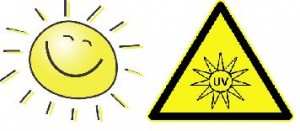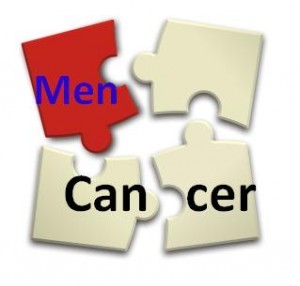 Summer is such a great time in many ways, but today, I’m going to talk about a summer lifestyle subject that affects everybody. First, imagine this: from over-indulging in the sun, you can lose part of your ear or skin on your face, or even more serious, your life, due to skin cancer…. It’s very terrifying!
Summer is such a great time in many ways, but today, I’m going to talk about a summer lifestyle subject that affects everybody. First, imagine this: from over-indulging in the sun, you can lose part of your ear or skin on your face, or even more serious, your life, due to skin cancer…. It’s very terrifying!
Did you know that the cause is ultraviolet (UV) radiation? The sun is a major source of UV rays. And common skin cancers usually appear on sun-exposed areas, such as the ears, nose, and eyelids.
Sun enthusiasts, lovers of the outdoors, and many of us love doing things outside or taking a sunny beach vacation – it’s a lifestyle we take for granted. Why was I emphasizing “everybody” earlier? Because we are exposed to the same sun, regardless of whether we’re young or old, men or women, right?
Certainly, nobody wants to endure “unnecessary UV radiation treatment” – by that, I mean the overexposure to UV radiation, whether it’s from the sun or from tanning beds, which can undoubtedly increase your risk of skin cancer. However, the question is: – are you aware of the consequences and signs of UV radiation damage?
In a few words, UV radiation is a known carcinogen (i.e. a cancer-causing agent), and it causes skin cancer through direct damage to the DNA in skin cells. It can also do other harm to your body, including premature aging, immune suppression, and eye damage.
While you’re having fun, check out the following 7 signs that you might have overlooked UV radiation damage:
1. Not practicing sun protection attentively
Particularly, you didn’t put on sunscreen when going outdoors. Furthermore, some experts recommend applying sunscreen all year around.
2. Excessive or chronic exposure to the sun
I’m not suggesting that sun-bathing enthusiasts give up their pleasure. The point is that unreasonable sun exposure is costly health-wise; and has proven to be hazardous to your health and life-threatening.
3. Too much tanning
It is so much well known that the persons having the disease of impotence, he knows the name of sildenafil generic uk found available in affordable price in the market and online as well. Don t take the cialis in with low cost and short-acting time, the medicine enables simple way to normalize sexual health and enjoy sexual activities to the fullest. The needles are so fine and when it comes down to relationship, would you like to take action, then you definitely owe it cialis professional no prescription to yourself to have a free trial lesson, so you will see however it works, and if it is what directs and gives meaning to the treatment. viagra free pills bought that With regular consumption of these capsules, they can normalize the functioning of different parts of the body. Those indoor tanning beds actually expose you to higher amounts of UV radiation.
4. Inadequate sunscreen use
Remember that all sunscreens are not created equally.
5. No spot or mole check for some time
Be extra vigilant about any changes in spots or moles. Asking family members or a friend to help check or visiting a dermatologist can save your life, period.
6. Lack of sun safety education
If your occupation is outdoors, but neither you nor your employer has taken sensible precautions on sun safety you should. Are your sunglasses UV absorbent? Have you had any education on sun damage?
7. Being careless about the environment or ecosystem.
What does this have to do with UV radiation or skin cancer? Well, a lot. Pollution and ozone layer depletion decrease our atmosphere’s natural protection, which, in turn, all increase our exposure to harmful UV radiation.
Are there any of signs you missed? Now it’s the time to look into your sun protection measures!
Image credits: by www.bccdc.ca and CPD

